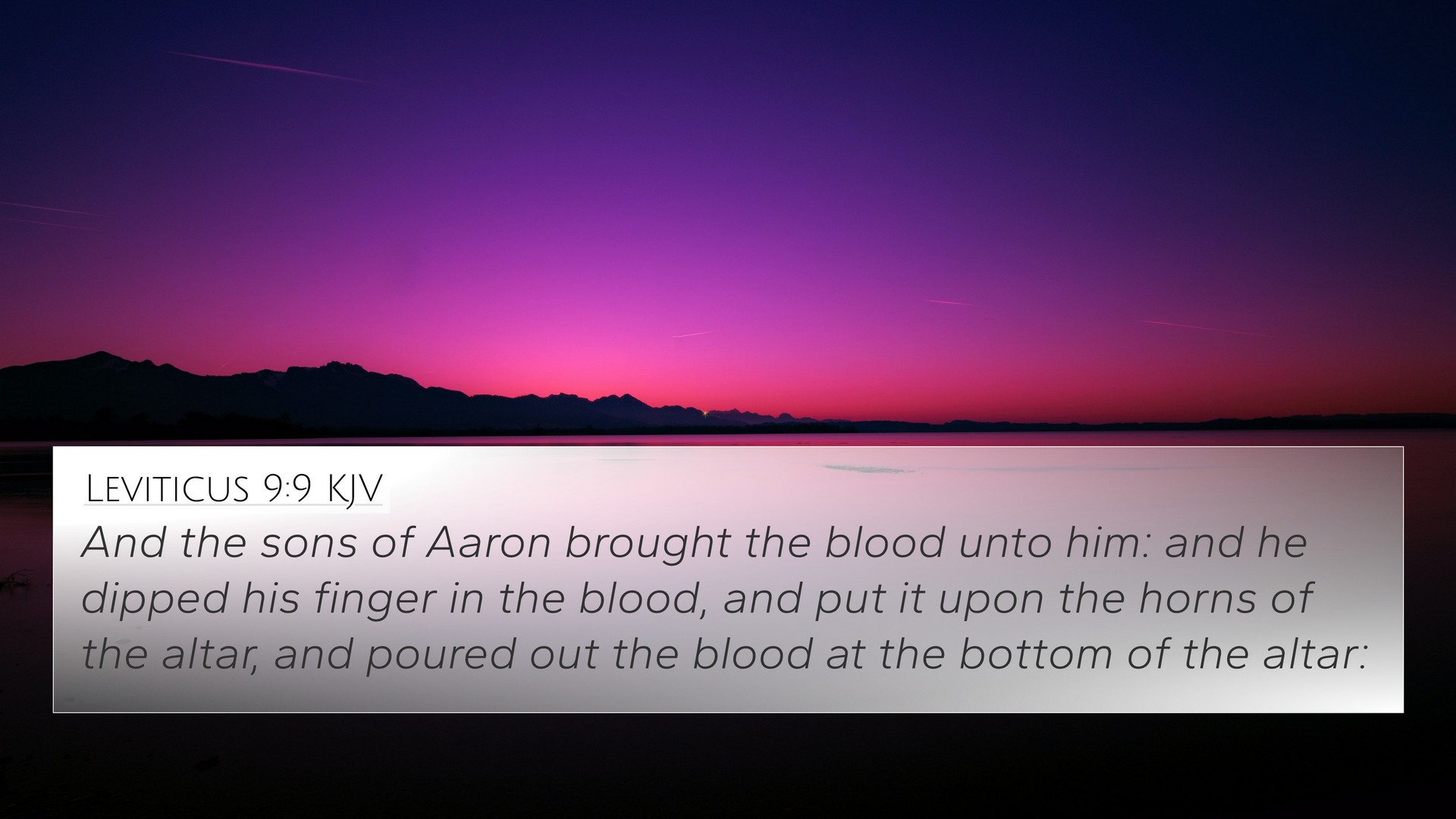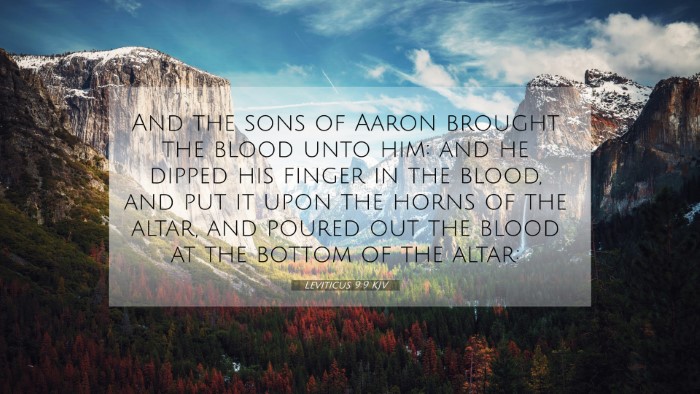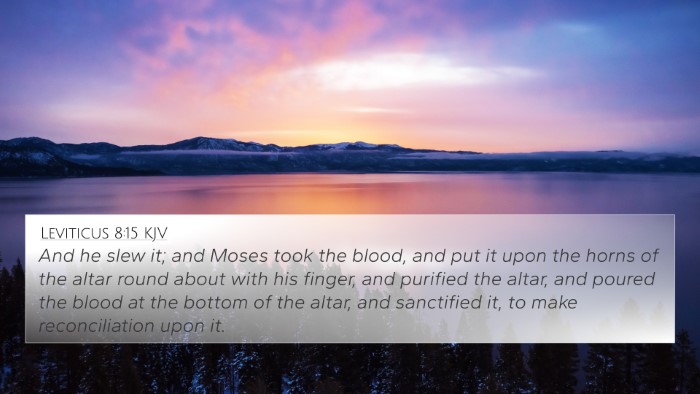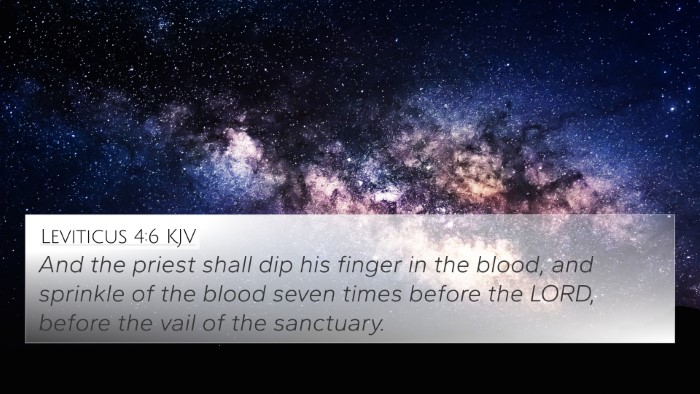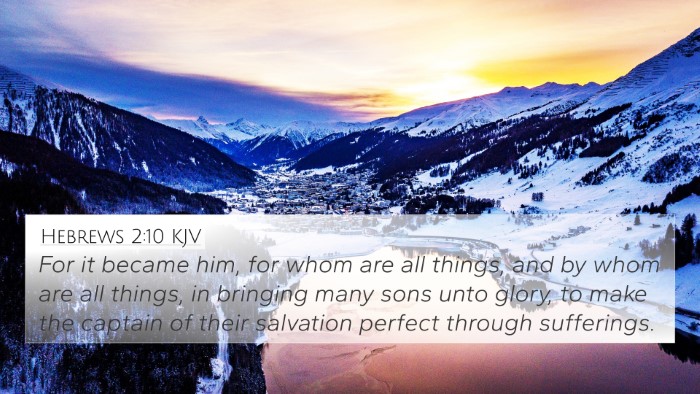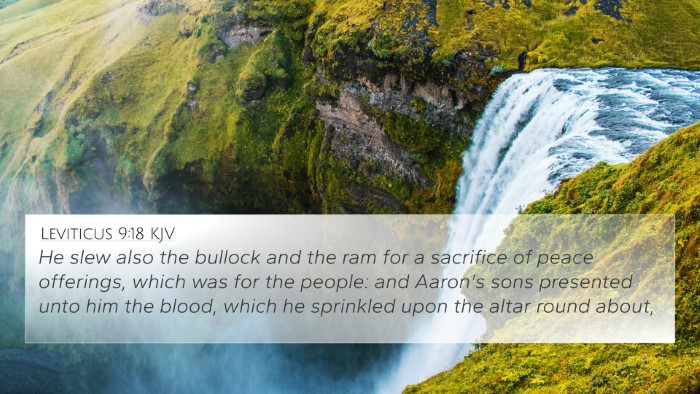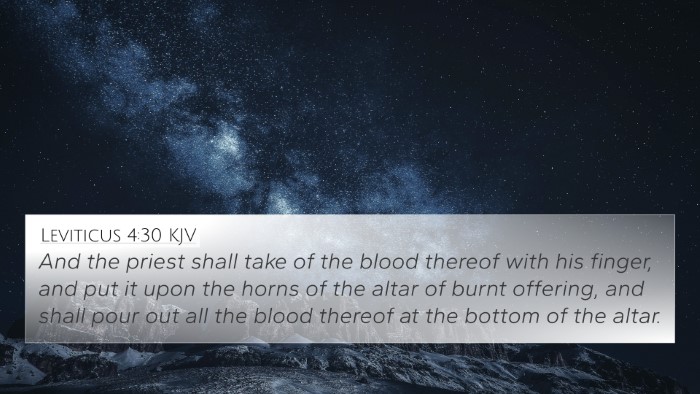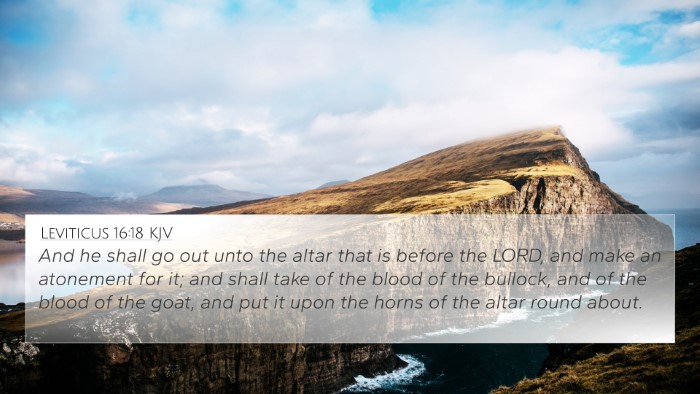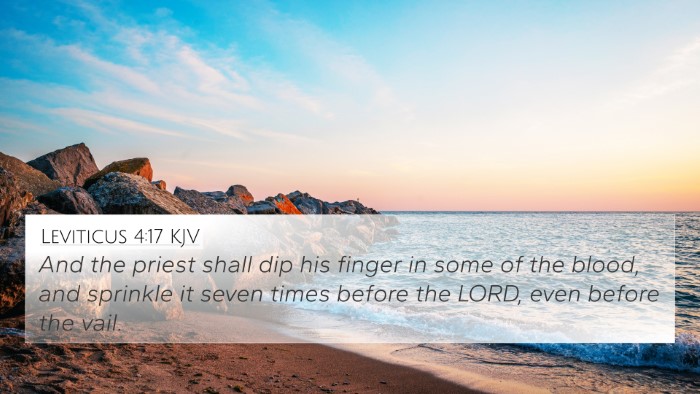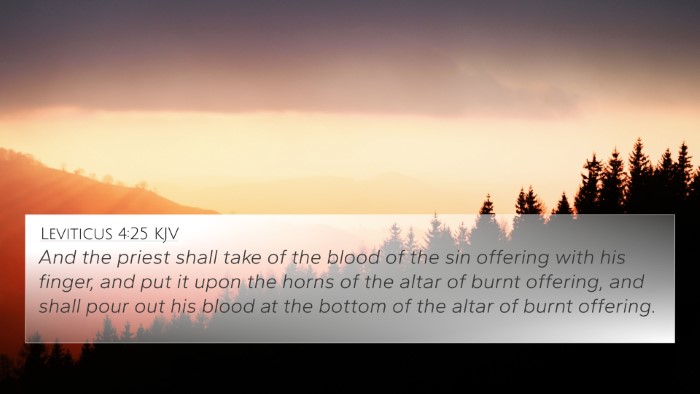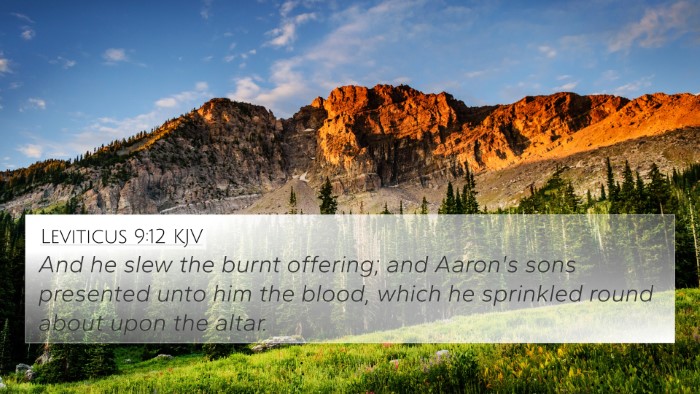Bible Verse: Leviticus 9:9
Verse Text: "And the sons of Aaron brought the blood unto him: and he dipped his finger in the blood, and put it upon the horns of the altar, and poured out the blood at the bottom of the altar."
Meaning and Interpretation
This verse is set in the context of the consecration of Aaron and his sons as priests, marking a significant moment in the establishment of the Levitical priesthood. It underscores the importance of blood in redemptive acts in the covenant community of Israel and lays the foundational understanding of atonement.
Historical Context
The sacrifices made here are part of a larger sacrificial system instituted by God through Moses. The blood from the sacrificial animals served a crucial role in the rituals meant to establish purity and atone for the sins of the people.
The Role of Aaron's Sons
Matthew Henry highlights the act of obedience displayed by Aaron's sons in fulfilling their priestly duties. This reflects the seriousness of their role and emphasizes the notion of proper conduct in worship and sacrifice.
Significance of Blood
Albert Barnes comments on the symbolic meaning of blood in this verse. Blood is often seen as the life-source of the creature, its use in sacrifices represents the life being offered to God and is a fundamental concept in the sacrificial system.
The Altar
Adam Clarke points out the significance of the altar in this ritual. The act of anointing the horns of the altar with blood signifies a covenant-bound relationship between God and His people. This spatial element emphasizes where the sacrificial act takes place as a sacred meeting point between humanity and divinity.
Connections to Other Bible Verses
This verse can be cross-referenced with several others that deal with the themes of sacrifice, atonement, and the priestly ministry:
- Exodus 29:12 - Discusses the pouring of blood at the altar's base.
- Hebrews 9:22 - Highlights the necessity of blood for forgiveness.
- Leviticus 17:11 - Explains that the life of the flesh is in the blood.
- 1 Peter 1:2 - Discusses the sprinkling of the blood of Jesus for sanctification.
- Romans 3:25 - Mentions God presenting Jesus as a sacrifice of atonement.
- John 1:29 - Describes Jesus as the Lamb of God who takes away the sins of the world.
- Hebrews 10:4 - States that the blood of bulls and goats cannot take away sins, pointing to a greater sacrifice.
Thematic Connections
The theme of atonement and sacrifice in Leviticus 9:9 aligns with various theological concepts throughout the Bible. Understanding these connections deepens the analysis of how different texts interplay with each other, especially in the exploration of God's redemptive plan.
Atonement in the New Testament
In the New Testament, the significance of blood goes beyond the Old Testament sacrifices. The shedding of Christ's blood is seen as the ultimate sacrifice, a perfect fulfillment of the shadows and types presented in the earlier scriptures.
Concluding Thoughts
Leviticus 9:9 invites readers to reflect on the grave importance of atonement through blood in both the Old and New Testaments. Its connections to other scriptures highlight the unity of God's message throughout the Bible, illustrating that the sacrificial system was not merely a ritual but an essential part of the larger narrative of redemption.
This verse and its interpretations encourage us to delve into cross-referencing Biblical texts as a vital tool for understanding the relationships between scripture passages. The insights garnered from this practice offer profound insights into the nature of God and His covenantal promises.
Tools for Further Study
For those interested in further exploring Bible cross-referencing, consider the following tools and methods:
- Utilizing a Bible concordance to locate similar themes and terms.
- Employing a Bible cross-reference guide to discover interconnected verses.
- Engaging in cross-reference Bible study to correlate themes across both Testaments.
- Using various Bible reference resources such as commentaries and study Bibles.
Further Reflection and Study Questions
Consider asking yourself the following as you study Leviticus 9:9 and its associated themes:
- What does this passage teach us about the nature of sacrifice?
- How does understanding this ritual deepen our appreciation for Christ's sacrifice?
- In what ways can we apply the principles of obedience and reverence found in the actions of Aaron’s sons in our own worship practices today?
Encouragement for Study
As you explore the connections between Bible verses, remember that engaging in this comparative Bible verse analysis enriches your understanding and helps draw meaningful applications for personal faith and communal worship.
